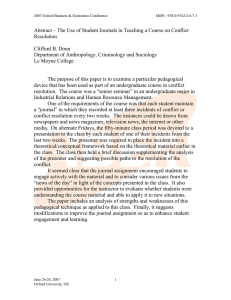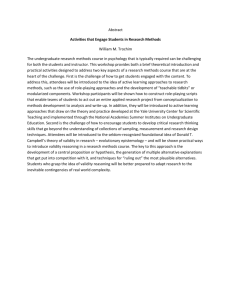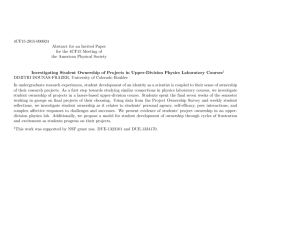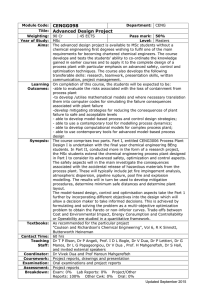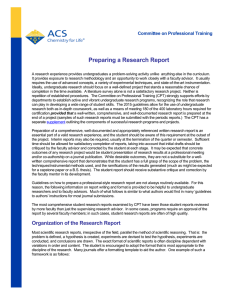Physics Colloquium
advertisement
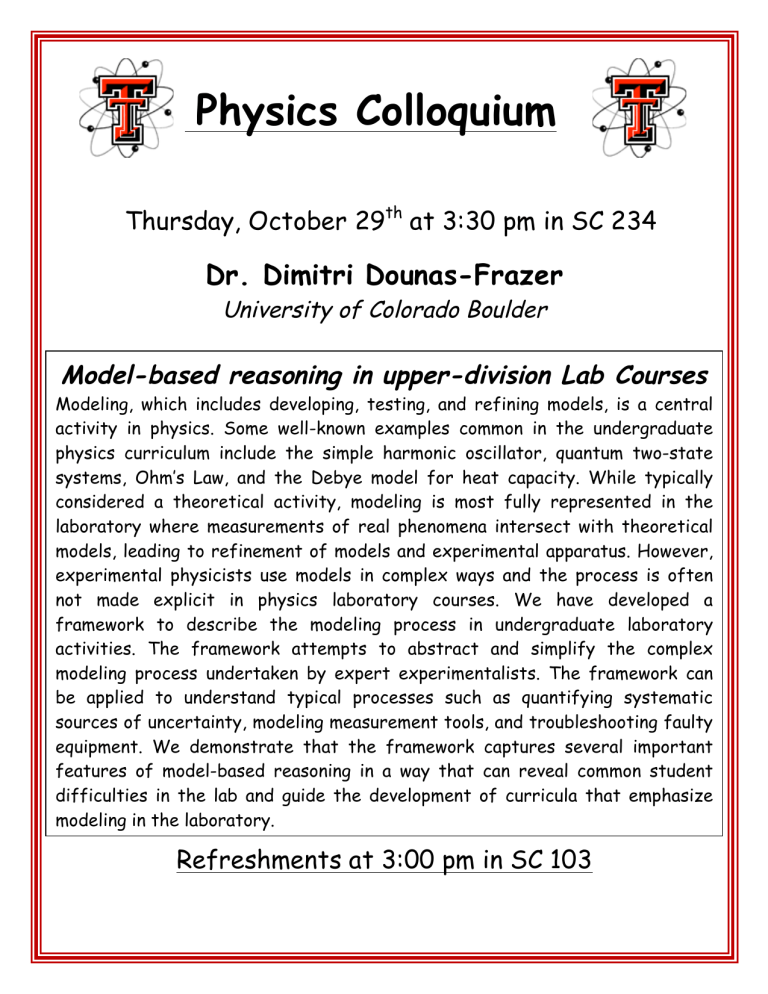
Physics Colloquium Thursday, October 29th at 3:30 pm in SC 234 Dr. Dimitri Dounas-Frazer University of Colorado Boulder Model-based reasoning in upper-division Lab Courses Modeling, which includes developing, testing, and refining models, is a central activity in physics. Some well-known examples common in the undergraduate physics curriculum include the simple harmonic oscillator, quantum two-state systems, Ohm’s Law, and the Debye model for heat capacity. While typically considered a theoretical activity, modeling is most fully represented in the laboratory where measurements of real phenomena intersect with theoretical models, leading to refinement of models and experimental apparatus. However, experimental physicists use models in complex ways and the process is often not made explicit in physics laboratory courses. We have developed a framework to describe the modeling process in undergraduate laboratory activities. The framework attempts to abstract and simplify the complex modeling process undertaken by expert experimentalists. The framework can be applied to understand typical processes such as quantifying systematic sources of uncertainty, modeling measurement tools, and troubleshooting faulty equipment. We demonstrate that the framework captures several important features of model-based reasoning in a way that can reveal common student difficulties in the lab and guide the development of curricula that emphasize modeling in the laboratory. Refreshments at 3:00 pm in SC 103

